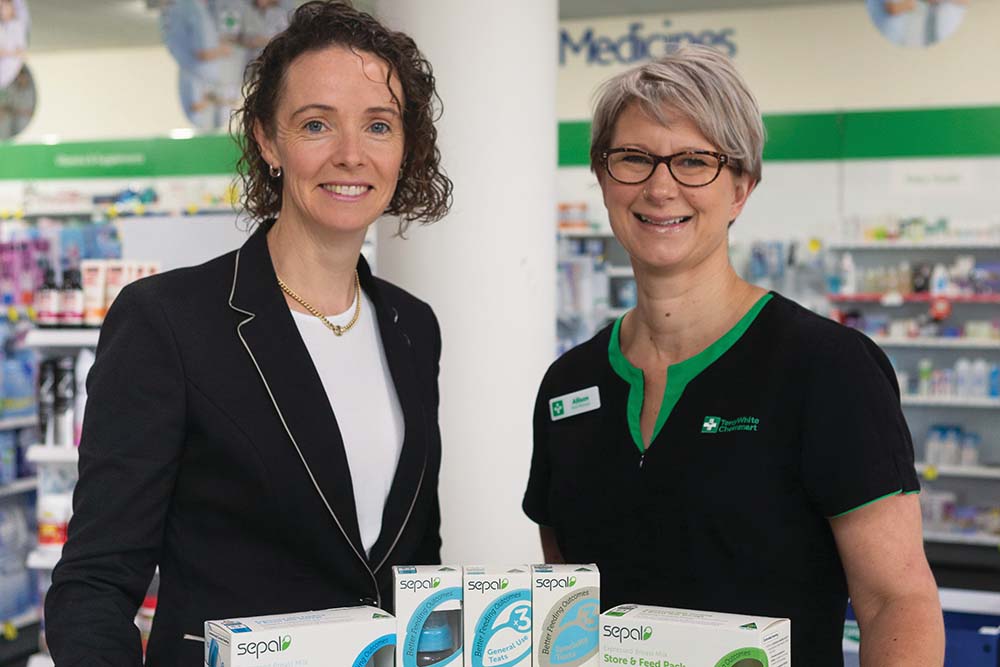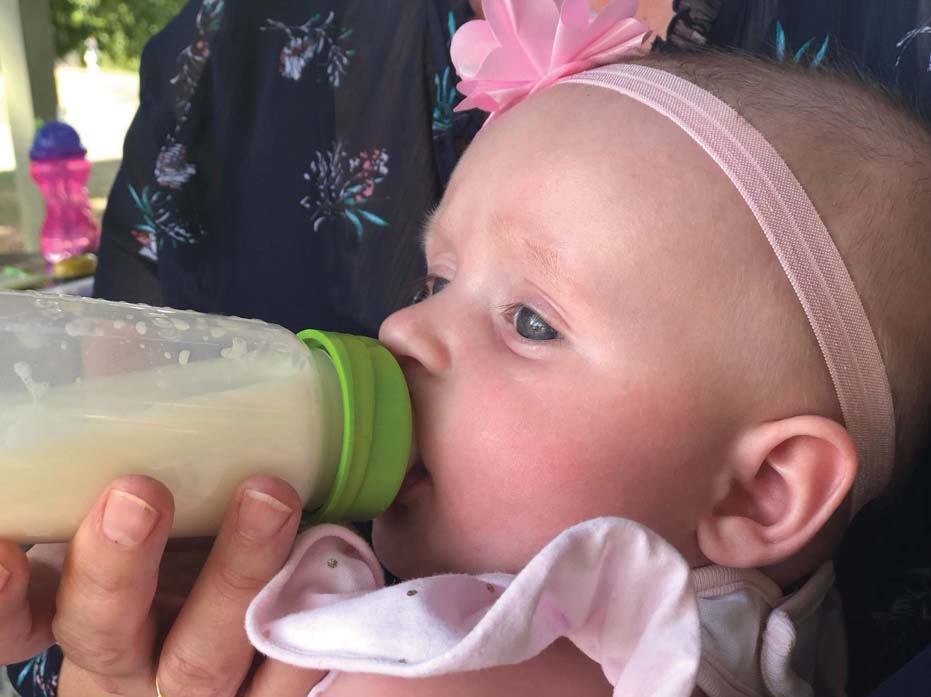
By Erica Louise Photos Gary Sissons
In 2014, Sepal, a manufacturing business part-owned by a Peninsula couple Mark and Fiona Turner, developed a specialised infant feeding range in conjunction with The Royal Children’s Hospital. Today their revolutionary bottles and teats are used Australia wide.
Sepal is a sister company of APS Innovations, an industrial design firm specialising in engineering solutions. Five years ago, there was an opportunity for APS Innovations to work with The Royal Children’s Hospital to develop a better manufacturing solution for infant bottle-feeding.
“The hospital had some issues with infant feeding and called upon people in the industry to put forward ideas for a solution. We applied and won the opportunity to collaborate with the RCH on the product development,” said Mark.
One of the issues the Royal Children’s Hospital was having was fulfilling the needs of babies with various attachment issues and nutritional needs. At the time, the teats used in the hospital were inconsistent in milk flow, resulting in sick babies struggling to establish a good feeding routine. The hospital also sought a greener solution to replace silicone teats that were being disposed of after use.
This gave APS Innovations the opportunity to develop their innovative range of 100% recyclable infant feeding bottles and teats.
When Sepal won the tender, they were presented with the Royal Children’s Hospital’s research and data.
“We were given access to CT scans of infants’ heads, across different sizes. This enabled us to model where the teat should be positioned in a baby’s mouth to facilitate better coordination of swallowing. We had the ability to get the positioning right,” said Mark.
Research suggested that a symmetrical-shaped teat does not make sense; that a baby’s upper palate is hard whereas the tongue is soft. Sepal’s engineering team spent years developing a design that would conform to the natural, albeit complicated, shape of a baby’s mouth. Sepal’s teats allow infants to complete a continuous feeding cycle, because the teat fits more naturally in the infant’s mouth.

Sepal designed a selection of teats to cater for the needs of all infants. At the time, other infant feeding manufacturers only offered small, medium or large hole teats for bottles. Sepal has twelve variations.
“Our goal is to enable babies to feed independently, depending on whether they’re tired and can take their time on their feeds or if they’re super hungry and can suck more. Our range allows them to self-pace their feeds,” explains Fiona.
The secondary part of the manufacturing solution was to develop an infant feeding product range that could be recycled. Due to sanitary regulations, many hospitals dispose of teats after one use. All Sepal products are made using 100% recyclable materials. This makes Sepal’s range a greener alternative to other products on the market.
The development process took four years to develop. Bottles and teats were made and tested on mechanical devices. Prototypes were then produced but had to go through an ethical standards committee to trial with babies in the hospital. Sepal’s infant feeding teats and bottles are currently used in over 30 hospitals around the country and that number is growing.
Sepal is changing the way young infants feed in hospitals and at home. The business has also moved into the retail sector, allowing parents to buy teats and bottles online and in pharmacies throughout Australia.
While Sepal as a retail brand is relatively small, it is expanding. When a new hospital starts using Sepal’s infant products, there is a jump in online sales of teats and bottles. Parents of babies who were in hospital using Sepal teats come home and need the next size up.
“We’re also finding a lot of recommendations for our products across platforms supporting new mums,” explains Mark. “Last week we received an online order at 6:43am – an early morning feed time and another anxious follow up email at 10am on the same day.”
Sepal’s manufacturing plant in Keysborough churns out around 8,000 pieces every day. There are also plans to launch the Sepal range to venture onto the global market. However, at the moment Sepal remains a small grounded business, with a team who are passionate and confident in their innovative design. As Fiona explains:
“Every single staff member has had some experience with either their own child or family or friends’ kids and have seen the struggle with feeding infants. So, it really means something to all of us that if we can make sure there is a baby who stops crying, and is happy and content because they’ve had a decent feed, then it’s all worthwhile.”
The Sepal infant feeding range of teats and bottles are available to buy from Terry White Chemist in Frankston or online via www.sepal.com.au
